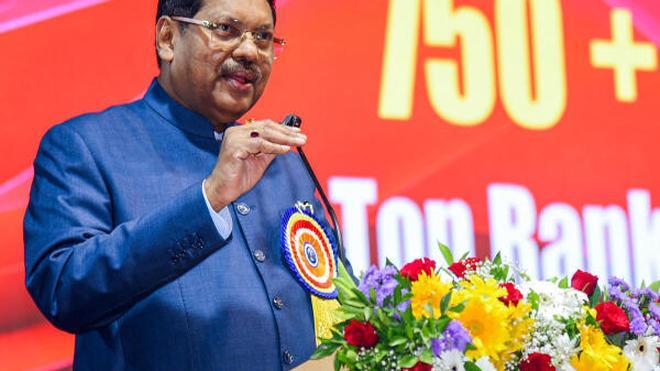CJI Gavai calls for legal education that serves justice, not just the bar and bench
By | Education | 19-Sep-2025 14:04:35

News Story
law schools.
Chief Justice of India B R Gavai has urged a fundamental rethink of legal education, emphasizing that it should go beyond producing professionals for the bar and bench to cultivating citizens committed to liberty, equality, and fraternity.
Speaking at the inaugural Professor N.R. Madhava Menon memorial lecture, themed “Legal and Justice Education @2047: An Agenda for 100 Years of Independence,” CJI Gavai underscored the need to ensure that access to law and justice is not a privilege of the few but a lived reality for every citizen.
“In my view, legal education is not merely about producing professionals for the bar and the bench. It is about cultivating citizens who are committed to the ideals of liberty, equality, and fraternity,” he said, stressing that the journey toward 2047 must be rooted in constitutional principles, social justice, technological advancement, and professional skills.
CJI Gavai highlighted persistent barriers to legal access. “Geographical, economic, and linguistic obstacles have long kept marginalized citizens distant from courts and legal institutions.
Economic disadvantage often means that even when legal remedies exist, they remain unaffordable for those who need them most. If the law is to truly empower, these barriers must be dismantled,” he said.
The CJI called for reimagining legal education by leveraging technology, promoting instruction in regional languages, strengthening legal aid, and creating pathways for first-generation learners.
He also stressed the ethical responsibility of law schools to instill respect for constitutional ideals and expand research into emerging areas of law.
“While the five-year integrated law programme and the National Law School model have been transformative, they have also, perhaps unintentionally, channeled many graduates toward corporate careers.
The voices and perspectives of our region—shaped by histories of colonialism, economic disparity, and struggles for equality—cannot remain peripheral in global legal discourse,” he added.
Supreme Court judge Justice Surya Kant, who delivered the memorial lecture, outlined three pillars for reform: modernizing legal education, infusing it with ethics, and democratizing access.
He warned that faculty shortages in National Law Universities and the high cost of legal education are limiting access, while initiatives like community-oriented lawyering and Gram Nyayalayas remain largely unrealized.
Justice Kant stressed that legal education must be rooted in societal realities rather than ivory towers. “Law is the foundation upon which society is built. Integrating interdisciplinary learning and a digital-first approach is no longer optional—it is essential for the future of justice. In 2047, machines may assist, but humans must answer,” he said.
He also called for compulsory legal aid clinics in all law schools and greater affordability to ensure bright, motivated students from underprivileged backgrounds can pursue law.
Both the CJI and Justice Kant made a strong case for a vision of legal education that prioritizes justice, inclusion, and ethical responsibility over mere professional advancement—a vision that seeks to prepare India for its centenary of independence.